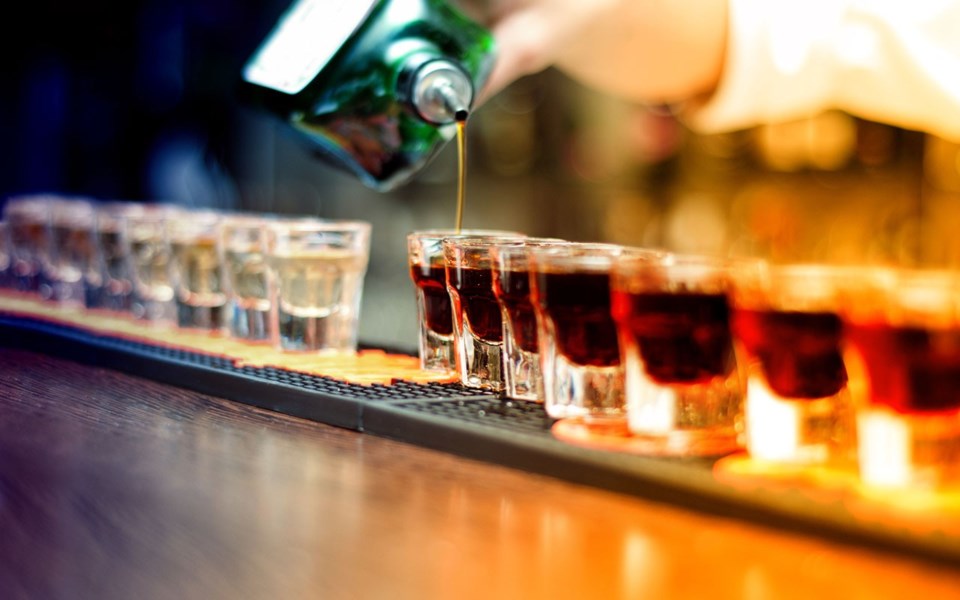Living in a ski resort can give one a sense of security that few other places can rival.
Surrounded by mountains and likeminded people, it's easy to feel comfortable, removed from the darker, more challenging bits of humanity.
That sense, however, was shaken this season. Here in Whistler, the community recently learned the fate of Alison Raspa, whose body was recovered from Alpha Lake on March 16, nearly four months after she went missing.
The 25 year-old Australian was last seen leaving a village restaurant and bar just after midnight on a chilly November night. Her cell phone was found in Alpha Lake Park, leading to a search of the area.
Meanwhile, in Sun Peaks, the search for Ryan Shtuka continues. The 20-year old was last seen leaving a party in the early hours of Feb. 17.
It was -26 Celsius, and snowing heavily that night. He never made it home—a short, 10-minute walk from the party.
In addition to formal searches by police and search and rescue, Ryan's parents have moved to the small mountain town and are leading an independent search, probing snow banks, putting up missing person signs, and organizing volunteers.
A GoFundMe campaign has raised over $70,000 to support their efforts, and busloads of volunteers, from as far away as Edmonton, have assisted.
All the while, Ryan's mother, Heather, has given the public a glimpse into her unspeakable pain, writing about the ordeal in Facebook and blog posts.
Recently, Heather wrote about the comfort she found in what was once an ordinary experience, cleaning her home and making banana pancakes for her daughter.
"I have forgotten what normal feels like or even means," she writes. "I long to be normal. To be utterly bored by my life."
The disappearances have cast a dark shadow over both mountain towns.
Rumours and theories abound.
But maybe it's time to discuss a different, more challenging question: What can we do to avoid such tragedy?
It starts, I think, with people paying more attention to the well being of others, particularly at night. In a world where talking to strangers, and especially drunk strangers, is discouraged, it can feel awkward.
But checking in, making sure the person zigzagging in front of you is OK, knows where they're sleeping and is capable of getting there, is vital.
It takes only a sec—but who knows the pain it could avoid.
It is also high time for our bars and clubs to rein in overdrinking. Some establishments continue to offer "specials" on multiple shooters and doubles aimed squarely at young people looking to get drunk on the cheap. Sun Peaks' most popular bar went ahead with its annual tradition this year: Drink Bottoms Dry. The day after the hill closed, seasonal workers lined up at the door with pockets full of crisp bills, ready to down as many $4 drinks as possible.
The goal, of course, is to get everyone obliterated. Why not celebrate the end of a glorious ski season by partying like a group of hormonal frat boys during frosh week?
Whether Tourism Whistler highlights it or not, Whistler is still viewed as a wild party town, and, in my experience, bar staff often tolerate a level of drunk that would get you the boot in other places.
What's remarkable is that the courts have made clear that overserving can land establishments in serious hot water. In March, a Vancouver bar, the Cambie, was assigned a 25-per-cent fault for a 2012 accident that saw a pedestrian hit by a drunken patron, and in 2005, two bars in Whistler were deemed to be 15-per-cent at fault for a drunk-driving crash that left one passenger paralyzed.
According to Serving it Right—B.C.'s mandatory self-study course that educates bar staff and owners about their legal responsibilities—in the majority of cases, blame apportioned to the licensee ranges from five per cent to 25 per cent.
"You must not sell or give liquor to an intoxicated person," state's the organization's website in clear, unequivocal language. "The licensee and servers have a legal obligation to protect patrons and others from harm that can result from the activity of drinking, whether that harm occurs on or off the premises."
It's hard to imagine—by any measure—that Whistler bars are always meeting this standard.
To say this isn't, of course, to absolve individuals of responsibility for their own actions. It is, rather, to say that we, collectively, can—and should—take steps to better protect people from themselves, especially those who are young, vulnerable, and may well be grappling with a host of mental conditions that can be exacerbated by heavy alcohol consumption.
Seasonal workers are the backbone of mountain towns. They are going to drink, party, and (in some cases) do drugs. If we can take steps to ensure their safety, we should.




